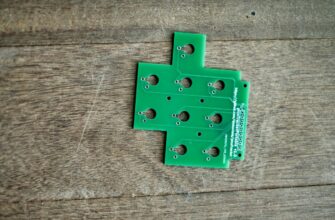- Why Choosing the Right Bitcoin Wallet Matters in Bolivia
- Top 5 Bitcoin Wallets for Bolivian Users
- 1. Exodus (Software Wallet)
- 2. Ledger Nano X (Hardware Wallet)
- 3. Trust Wallet (Mobile Wallet)
- 4. BlueWallet (Lightning Network Focused)
- 5. Muun (Non-Custodial Lightning Wallet)
- Key Features Bolivians Should Prioritize
- How to Set Up Your Bitcoin Wallet in Bolivia: 5 Simple Steps
- Frequently Asked Questions (FAQs)
- Q: Is Bitcoin legal in Bolivia?
- Q: Can I buy Bitcoin directly with Bolivianos (BOB)?
- Q: What’s safer: mobile or hardware wallets?
- Q: Are there Bolivia-specific Bitcoin wallets?
- Q: How do I avoid high Bitcoin transaction fees?
Why Choosing the Right Bitcoin Wallet Matters in Bolivia
With Bolivia’s growing crypto adoption despite regulatory ambiguity, selecting a secure Bitcoin wallet is critical. The Central Bank of Bolivia prohibits financial institutions from dealing in cryptocurrencies, but peer-to-peer transactions remain legal. This makes self-custody wallets essential for Bolivians seeking financial sovereignty. A reliable wallet ensures asset security, low fees for cross-border remittances (a key use case), and accessibility in regions with intermittent internet.
Top 5 Bitcoin Wallets for Bolivian Users
After evaluating security, accessibility, and Bolivian user needs, these wallets stand out:
1. Exodus (Software Wallet)
- Key Features: User-friendly interface, 100+ asset support, built-in exchange, Trezor integration
- Pros: Free mobile/desktop apps; No KYC; Spanish language support
- Cons: Higher exchange fees; Closed-source code
- Bolivia Fit: Ideal for beginners needing simple P2P transactions.
2. Ledger Nano X (Hardware Wallet)
- Key Features: Cold storage, Bluetooth connectivity, Ledger Live app
- Pros: Military-grade security; Supports 5,500+ coins
- Cons: $149 purchase cost; Requires physical device
- Bolivia Fit: Best for large holdings; immune to online hacks.
3. Trust Wallet (Mobile Wallet)
- Key Features: Binance integration, Web3 browser, staking options
- Pros: Completely free; Open-source; Low RAM usage
- Cons: Limited desktop functionality
- Bolivia Fit: Optimized for Android devices common in Bolivia.
4. BlueWallet (Lightning Network Focused)
- Key Features: Lightning Network support, multisig vaults, fee customization
- Pros: Near-zero transaction fees; Bitcoin-only security
- Cons: No altcoin support
- Bolivia Fit: Reduces remittance costs to family abroad.
5. Muun (Non-Custodial Lightning Wallet)
- Key Features: Unified on-chain/Lightning transactions, intuitive design
- Pros: No channel management; Disaster recovery
- Cons: Newer with smaller track record
- Bolivia Fit: Seamless micropayments for local vendors.
Key Features Bolivians Should Prioritize
When selecting a wallet in Bolivia’s unique landscape, prioritize:
- Non-Custodial Control: Avoid exchanges banned by regulators. Your keys, your coins.
- Low Data Usage: Wallets like Trust Wallet perform well on 3G networks.
- Fee Customization: Adjust fees during network congestion to save costs.
- Offline Accessibility: Hardware wallets work without constant internet.
- Local Exchange Integration: Connect to P2P platforms like LocalBitcoins for BOB/BTC swaps.
How to Set Up Your Bitcoin Wallet in Bolivia: 5 Simple Steps
- Download: Install from official sites (avoid third-party stores).
- Secure Seed Phrase: Write 12-24 words on paper—never digitally.
- Enable 2FA: Add extra login protection.
- Test Small Transaction: Send $1 worth of BTC first.
- Connect to P2P Market: Use Hodl Hodl or LocalCryptos to buy BTC with Bolivianos.
Frequently Asked Questions (FAQs)
Q: Is Bitcoin legal in Bolivia?
A: While the Central Bank bans financial institutions from handling crypto, individuals can legally own and trade Bitcoin peer-to-peer under Decree 748.
Q: Can I buy Bitcoin directly with Bolivianos (BOB)?
A: Yes! Use P2P platforms like LocalBitcoins, Binance P2P, or Agente Dólar to exchange BOB for BTC without banks.
Q: What’s safer: mobile or hardware wallets?
A: Hardware wallets (e.g., Ledger) offer maximum security for savings. Mobile wallets (e.g., Exodus) suffice for smaller, daily-use amounts.
Q: Are there Bolivia-specific Bitcoin wallets?
A: None currently, but wallets with Spanish UI (Exodus, Trust Wallet) and low-data usage align best with local needs.
Q: How do I avoid high Bitcoin transaction fees?
A: Use Lightning Network wallets (BlueWallet, Muun) for instant transfers under $0.01, or schedule transactions during low-fee windows.








